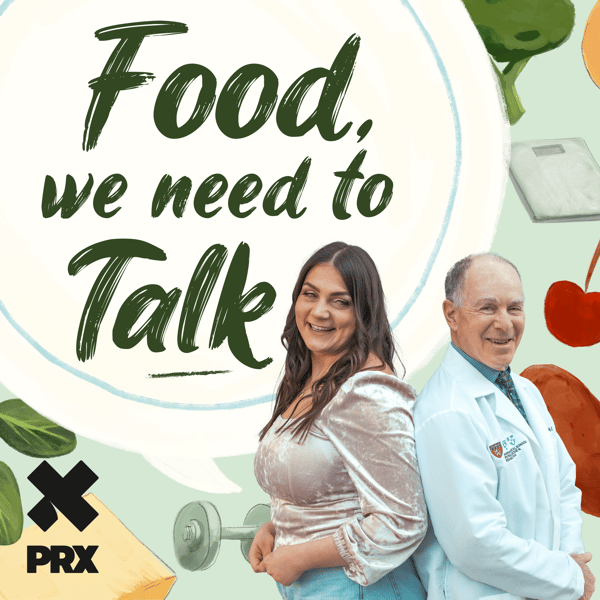Using Food to Boost Your Memory
Food, We Need To Talk
Juna Gjata
4.8 • 2K Ratings
🗓️ 2 December 2024
⏱️ 6 minutes
🧾️ Download transcript
Summary
In this episode, we continue our conversation with Dr. Uma Naidoo, diving deeper into the fascinating world of nutritional psychiatry. Dr. Naidoo answers listener questions about foods that can promote memory, fend off neuroinflammation, and support mental health at every stage of life. We discuss the role of intermittent fasting, the impact of processed and ultra-processed foods on cognition, and surprising connections between diet and depression. From brain-boosting foods like blueberries and turmeric to the potential of mood-enhancing ingredients like saffron, this episode is packed with practical tips for using food to nurture both mind and body.
Transcript
Click on a timestamp to play from that location
| 0:00.0 | Welcome back to another episode of the talk. Today we are diving in even deeper with Dr. |
| 0:06.6 | Umanidu about foods that are good for your brain. And we have some questions from our listeners. |
| 0:11.7 | So this first question is from Missy Faith. And she asks, what does the research say about eating foods to promote memory? |
| 0:21.2 | Are there any foods that promote better memory? |
| 0:23.8 | So some of the foods that I write about in my first book, where I write a chapter on |
| 0:29.4 | cognitive disorders and memory, the foods that I list there include things like blueberries, |
| 0:35.0 | olive oil, turmeric, the active ingredient in turmeric is curcumin, |
| 0:39.9 | always paired. I say have a quarter teaspoon of turmeric with a pinch of black pepper, |
| 0:44.2 | added to super smoothie or tea. Those are three good ones to get started with. So they have a |
| 0:50.4 | good amount of evidence behind them. And is there any research about people who might have more serious memory issues |
| 0:56.9 | like with dementia or Alzheimer's? |
| 0:58.8 | Is there any research about improving their diet helps them to lower their symptoms? |
| 1:03.6 | I'll tell you that what I know and what I've seen clinically |
| 1:06.4 | and collaborated with my colleagues on is that whatever stage you're at, working against |
| 1:13.3 | neuroinflammation in your brain by starting to change to those healthier eating habits |
| 1:18.5 | will fend off any potential that you say you have a family history or many of us walk around. |
| 1:26.4 | You've heard about the expression of many of us walk around with nascent inactive cancer cells. |
| 1:31.5 | But lifestyle and other factors can cause that change. |
| 1:35.3 | Similarly, in the brain, you can have sort of brewing neuroinflammation, but how you eat |
| 1:41.2 | and your lifestyle changes, things like exercise that, you know, Eddie |
| 1:44.8 | talks about all the time. These are very powerful factors that fend off the early neuroinflammation. |
| 1:50.7 | We don't yet, and we're not at a point where we can reverse Alzheimer's through food. |
... |
Please login to see the full transcript.
Disclaimer: The podcast and artwork embedded on this page are from Juna Gjata, and are the property of its owner and not affiliated with or endorsed by Tapesearch.
Generated transcripts are the property of Juna Gjata and are distributed freely under the Fair Use doctrine. Transcripts generated by Tapesearch are not guaranteed to be accurate.
Copyright © Tapesearch 2025.

